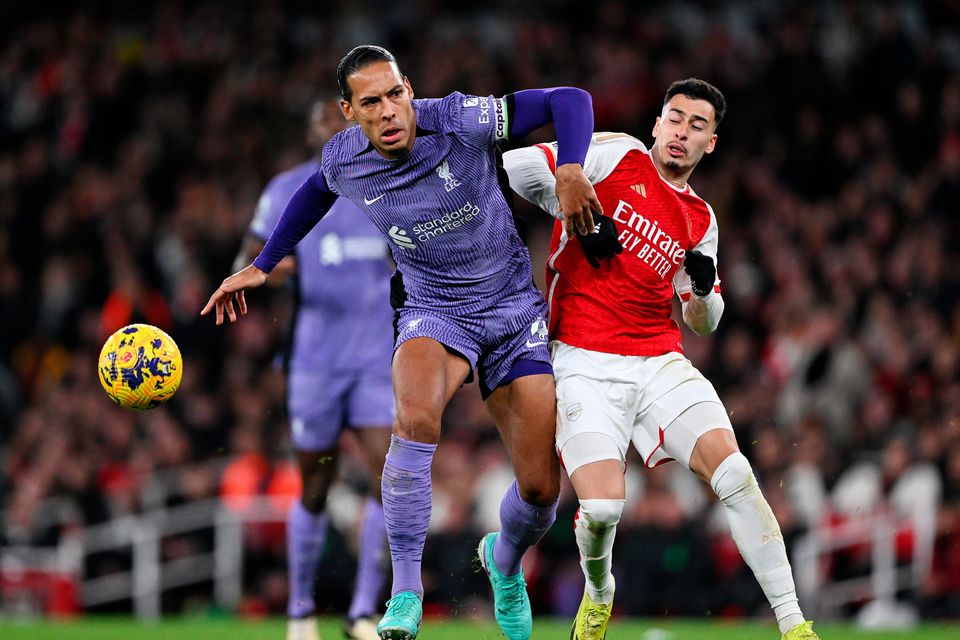When it comes to work ethic, there are few players in the Arsenal squad who can match Gabriel Martinelli.

Steve Round, one of manager Mikel Arteta’s former assistants, describes the Brazilian as someone who trains “like it’s his last day on earth” — and it is why he is so loved among Arsenal’s coaching staff. Indeed, in a team meeting this season, Arteta showed the team a clip of Martinelli tracking back in training to emphasise the work-rate he demands.
The frustration for Martinelli is that, for all his brilliant defensive work, he has struggled in front of goal this year. The winger finished last season as Arsenal’s joint-top scorer in the Premier League with 15 goals, and he also chipped in with five assists.
But Martinelli has scored only eight times in 41 appearances in all competitions this campaign. His form is in stark contrast to the rest of Arsenal’s front-three, especially Bukayo Saka on the opposite flank.
Saka is the Gunners’ top scorer this season, with 19 goals and 14 assists, while Kai Havertz is also excelling as a centre-forward. After a difficult start, Havertz has been directly involved in 19 goals.
But most worryingly for Martinelli has been the form of Leandro Trossard, who has started the past four Premier League games ahead of him.
Trossard has enjoyed a brilliant season, and Saka is the only player in the Arsenal squad who can better his tally of 15 goals.
The Belgian will hope to keep his spot for the final three games of the season, and there is certainly an argument that he is a better fit than Martinelli in this team. Unlike last season, the left side of the team has been in flux this year — and Martinelli is undoubtedly a victim of that.
Oleksandr Zinchenko is no longer guaranteed to start at left-back, with injuries and lapses on the ball costing him. His absence has been a blow for Martinelli, with the Ukrainian’s desire to tuck into midfield pulling players with him.
It routinely left Martinelli one-on-one with his opposite number last season, but, now that has stopped, defences have double marked him. The departure of Granit Xhaka has also hurt Martinelli. The Swiss played high up the pitch as a No 8 last season, to the point he was often the furthest player forward.
Again, as with Zinchenko, it dragged players away from Martinelli and gave him space to operate in. Declan Rice has replaced Xhaka in a different way, with his athleticism meaning he routinely drops deep to help the defence.
And then there is the fact that fellow Brazilian Gabriel Jesus is also no longer Arsenal’s regular No 9. Jesus and Martinelli have a brilliant connection when playing together, frequently swapping their positions to confuse defenders.
Havertz’s role differs from Jesus. The German instead acts as a focal point, and when he does move from his position, it is to drop deep, as opposed to out wide.
The challenge for Martinelli is to adapt to the way that Arsenal are evolving under Arteta and also find a solution to teams targeting him.
The challenge for Martinelli is to adapt to the way that Arsenal are evolving and also find a solution to teams targeting him
Saka, who admittedly has benefited from a settled right flank around him, has done just that after a tough start to the season, and Martinelli must do the same.
He has the talent to do so and, crucially, has repeatedly shown he has the right work ethic. When he was rejected by Barcelona and Manchester United as a youngster, Martinelli used it as motivation and began training three times a day.
His idol back then was Cristiano Ronaldo, Martinelli dreaming of one day becoming a great goal-scoring winger. That is still his aim and, even after a difficult season, he will not stop working to succeed.



